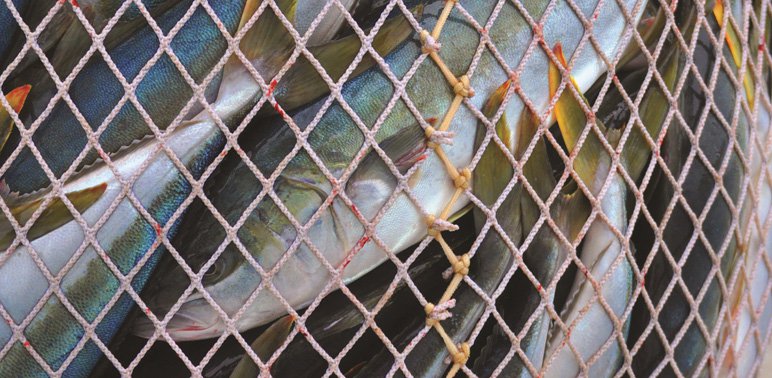The National Fisheries Institute has sued NOAA and the Department of Commerce over a recently enacted rule that could cost the commercial fishing industry as much as $1 billion annually.
NMFS’ issued a final rule on December 9 that requires U.S. seafood importers to trace the origin of the fish they import to either the specific boat that caught the fish or to its collection point, as well as the location and date the fish was caught.
The new IUU fishing rule requires U.S. seafood importers to trace the origin of the fish they import, but it will cost the industry at least $100 million per year. NOAA photo.The regulation was designed to combat illegal, unregulated and unreported fishing regulation, but it will cost the industry at least $100 million per year, NFI said in a press release. The commercial fishing industry’s lobbying group, along with several major seafood processors and associations, filed suit against top-tier officials in the Obama Administration, including the heads of the Commerce Department and NOAA, on January 6 in U.S. District Court in Washington, D.C. to ask for a delay and review of the law.
“NFI supports the goal of eliminating pirate fishing, but strongly disagrees with the means the Obama Administration took to meet that goal,” NFI President John Connelly said in a statement.
In addition to NFI, plaintiffs include Trident Seafood Corp., Dulcich Inc. (Pacific Seafood Group), Handy Seafood, Fortune Fish & Gourmet, Libby Hill Seafood Restaurants, Alfa International Seafood, Pacific Seafood Processors Association and West Coast Processors Association.
The changes required for tracking and processing seafood exported into the U.S. “would reduce exports into the U.S. and would dramatically increase the cost of catching, processing and importing seafood,” according to the complaint.
“Fishermen, many of whom are subsistence workers operating in third-world nations, would have to keep track of each fish harvested, as would the brokers who purchase the seafood from the fisherman, and processors who handle catches from hundreds of fishermen would have to be able to trace each piece of fish to a specific vessel and specific fishing events or to a single collection point,” the complaint said.
The regulation would also affect the way most fish are processed in the U.S., because the requirements applies to all domestically caught or farmed seafood that are shipped outside the U.S. for processing, and then re-imported back into the U.S.
NOAA’s rule “grossly underestimates the cost and impact of the regulation on those companies doing the right thing,” duplicates existing federal authorities and responsibilities, and does little to solve the problem of IUU fishing, Connelly said.
“NOAA’s fundamental shift from targeted investigation of the suspected guilty to arbitrary and massive data collection from the innocent creates an enormous economic burden on American companies that import and process the seafoods that families enjoy nightly,” he said.
While the Office of Management and Budget estimated the rule would cost the seafood industry around $6,475,000, the estimate is based only on the additional data entry work required on each container, NFI said.
“The lawsuit’s more realistic estimates find it would likely cost $100 million per year for the additional data, with a total economic impact on the seafood sector of as much as USD 1 billion,” Gavin Gibbons, spokesperson for NFI, told SeafoodSource.
In a rush to publish the rule, the Obama Administration refused to disclose data used to craft it, a violation of the Administrative Procedure Act, according to Connelly. In addition, miscalculating compliance costs violates the Regulatory Flexibility Act.
This article originally appeared on SeafoodSource.com. It is reproduced with permission.







